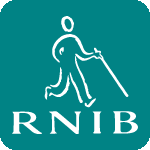Accessibility in User-Centered Design: Recruiting Screener
A usability test participant recruiting screener is used to determine if a potential participant matches the user characteristics defined in the usability test protocol. When recruiting participants with disabilities, ask the usual questions about demographics, frequency of use, experience level, etc. Additionally, include questions that address the characteristics related to disability and accessibility defined in your usability test protocol.
This section provides some basic questions that you can customize and add to your recruiting screener to cover disability and accessibility issues:
See also the Interacting with People with Disabilities chapter.
Screening Questions
Say: We are particularly interested in including people with disabilities in [developing our products | this study].
- Do you have a disability?
If yes, please briefly describe your disability and how it affects your use of [product type—such as mobile phones, websites, printers]. - Do you use any assistive technologies, specialized computer access software or hardware, or adaptive strategies when you use [product type]? (if needed, can provide examples: such as screen readers, voice input, alternative keyboard or pointing device)
- How long have you been using [assistive technology]?
- less than 3 months
- 3 months to 1 year
- more than 1 year
- How would you rate your skill with [assistive technology]? Use a scale of 1-5, where 1 is beginner level, 3 is [customize based on AT; for example, for screen reader could be: "I use several features and know how to use different modes"], and 5 is expert.
For each assistive technology given in #2, ask the next two questions, #3 and #4.
Say: Sometimes we conduct studies at our facility, and sometimes at participants' locations. Often it's best if you can use your own equipment and customized settings, rather than using ours, because it might be a different version or be set up differently.
- Would you be interested in coming to our facility at [location]?
If yes:- Would you be able to bring the computer and/or assistive technology you normally use to access [product] with you?
If no:- What assistive technologies should we have on-site to facilitate your use of [product]? (Get exact version numbers.)
- If you used [assistive technology] at our facility, would you be able to set it up (that is, customize the settings) like you are used to?
- Would you be able to bring the computer and/or assistive technology you normally use to access [product] with you?
- Would you be interested in having us come to your location—office, home, or other—to conduct the study?
- Are there any accommodations that we could provide or things we could so that you'd be more comfortable participating in the study, such as ensuring that our facility is wheelchair accessible, or scheduling session breaks?
- If you're conducting a focus group where there are likely to be guide dogs or other service animals: Are you comfortable with guide dogs or other service animals in the room during the session?
- Do you have ideas to help us find other people with disabilities who might be interested in participating in this study?
Questions for Selected Participants
- Before the study we will send a confirmation letter, directions to our facility, and a consent form. In what format would you like these materials?
- Electronically (e-mailed or disk mailed)
If yes,- Which format: accessible HTML, plain text, or other: ___
- Sent via e-mail or regular mail? If regular mail, What type of media: CD or floppy disk
- Printed, any text size
- Printed in large font
If yes, What is your preferred size and font face - Braille
If yes, What type of braille, for example, Grade 1 or Grade 2 - Verbally/Aurally
If yes, What format: electronic sound file e-mailed, CD mailed, cassette tape mailed, or read over the phone
- Electronically (e-mailed or disk mailed)
- During the study, we will have additional information for you. How do you prefer to receive it:
- Printed, any text size
- Printed in large font
If yes, What is your preferred font size and font face - Braille
If yes, What type of braille, for example, Grade 1 or Grade 2 - Electronically
If yes, What format: accessible HTML, plain text, or other: ___
If yes, What type of media: CD or floppy disk - Verbally, read to me
- The session will last about [approximate time, high end estimate]. Are you comfortable using [product] for that long? Would you like us to schedule breaks during the session?
- Would you prefer to have some of the questions ahead of time to prepare your answers?
- If deaf: Would you like us to arrange a sign language interpreter?
- If hard of hearing: Would you like an assistive listening device (ALD)?
- [Questions related to transportation for your specific situation, for example: Would you like us to arrange a taxi from the Acme subway station to our building?]
- What can we do to make the environment and our time together comfortable for you?
 You can get the Just Ask book from www.uiAccess.com/accessucd/print.html
You can get the Just Ask book from www.uiAccess.com/accessucd/print.html

